Happy Tuesday! Asked about his decision to accept a $400 million jumbo jet from the Qatari government on Monday, President Donald Trump quipped: “You should be embarrassed asking that question. … They’re giving us a free jet. I could say, ‘No, no, no, don’t give [it to] us. I want to pay you a billion or $400 million or whatever it is.’ Or I could say, ‘Thank you very much.’”
What is it they say about there being no such thing as a free lunch?
Quick Hits: Today’s Top Stories
- Israel on Monday welcomed home Edan Alexander, a 21-year-old American-Israeli dual citizen, after 584 days in Hamas captivity. His release followed direct talks between the U.S. and the terrorist group, which described the move as a gesture of goodwill. Alexander was transferred out of the Gaza Strip by the Red Cross before being released into the care of Israeli soldiers. “This was achieved thanks to our military pressure and the diplomatic pressure applied by President Trump,” Israeli Prime Minister Benjamin Netanyahu said in a video address Monday. With Alexander’s release, 58 hostages—20 of whom are believed to be alive—remain in Gaza.
- European leaders on Monday again pushed Russian President Vladimir Putin to accept a 30-day unconditional ceasefire before a midnight deadline or face additional sanctions over the war in Ukraine. French Foreign Minister Jean-Noël Barrot said that Europe is preparing its 17th sanctions package against Russia, which European officials will vote on at a May 20 meeting. But Barrot also outlined plans for further penalties on Russia’s energy and financial sectors in the event that Moscow fails to agree to a truce. On Monday, Kremlin spokesman Dmitri Peskov rebuffed the threat: “The language of ultimatums is unacceptable—you cannot talk to Russia like this.”
- President Donald Trump on Monday departed the U.S. for the Middle East, where he will meet with leaders in Saudi Arabia, Qatar, and the United Arab Emirates. But Trump suggested Monday that he may also travel to Turkey on Thursday for potential in-person talks between Putin and Ukrainian President Volodymyr Zelensky. Putin first suggested the face-to-face meeting last week, an offer Zelensky publicly accepted—reportedly to the Kremlin’s surprise—on Sunday. It is unclear whether the Russian leader will take part in Thursday’s meeting, but Zelensky on Monday backed Trump’s possible attendance. “This is the right idea,” he said. “I hope that the Russians will not evade the meeting.”
- The Kurdistan Workers’ Party (PKK)—a militant group behind scores of attacks in Turkey since 1984, including the deadly takeover of a state-run aerospace company headquarters in Ankara in October—on Monday announced plans to permanently disarm and disband. In February, Abdullah Öcalan—the group’s longtime leader who has been imprisoned by Turkey since 1999—issued a statement calling on PKK fighters to lay down their arms. On March 1, the PKK and Turkey agreed to a ceasefire. “With the complete elimination of terror and violence, the doors of a new era will open in every field,” Turkish President Recep Tayyip Erdoğan said on Monday, “especially in the strengthening of the democratic capacity of politics.”
- President Trump on Monday signed an executive order aimed at lowering prescription drug costs for American consumers. The effort seeks to impose “most favored nation” pricing, which would tie the price of pharmaceuticals sold in America to the lesser cost at which they are typically sold abroad. While the full details of the new policy remain unclear, Trump said he expects the move to cut drug prices by “between 59 and 80 percent—and I guess even 90 percent.” Though it doesn’t explicitly outline price controls, the order directs Health and Human Services Secretary Robert F. Kennedy Jr. to “communicate most-favored-nation price targets to pharmaceutical manufacturers,” alluding to potential penalties if they fail to comply. Additionally, the order instructs Kennedy to “facilitate direct-to-consumer” programs, allowing pharmaceutical manufacturers to sell to consumers with no middlemen.
- President Trump on Monday tapped Todd Blanche, the president’s former personal attorney and the current Justice Department deputy attorney general, to serve as the acting Librarian of Congress. The appointment followed Trump’s move last week to dismiss—without explanation—Carla Hayden, who had served in the role for nearly a decade. When asked on Monday about the president’s authority to remove the Librarian of Congress, a congressional employee, GOP Senate Majority Leader John Thune said, “We want to make sure congressional equities are respected and protected in this process.”
- Stock indices rallied on Monday as details of progress toward a U.S.-China trade agreement emerged, which will—for at least 90 days—spare both countries from triple-digit tariff rates. By market close, the Nasdaq Composite jumped 4.35 percent, while the S&P 500 increased 3.26 percent to its highest level since Trump’s “Liberation Day” tariff announcement on April 2. Meanwhile, the Dow Jones Industrial Average surged more than 1,100 points on Monday, a gain of 2.81 percent.
A China Trade ‘Deal’
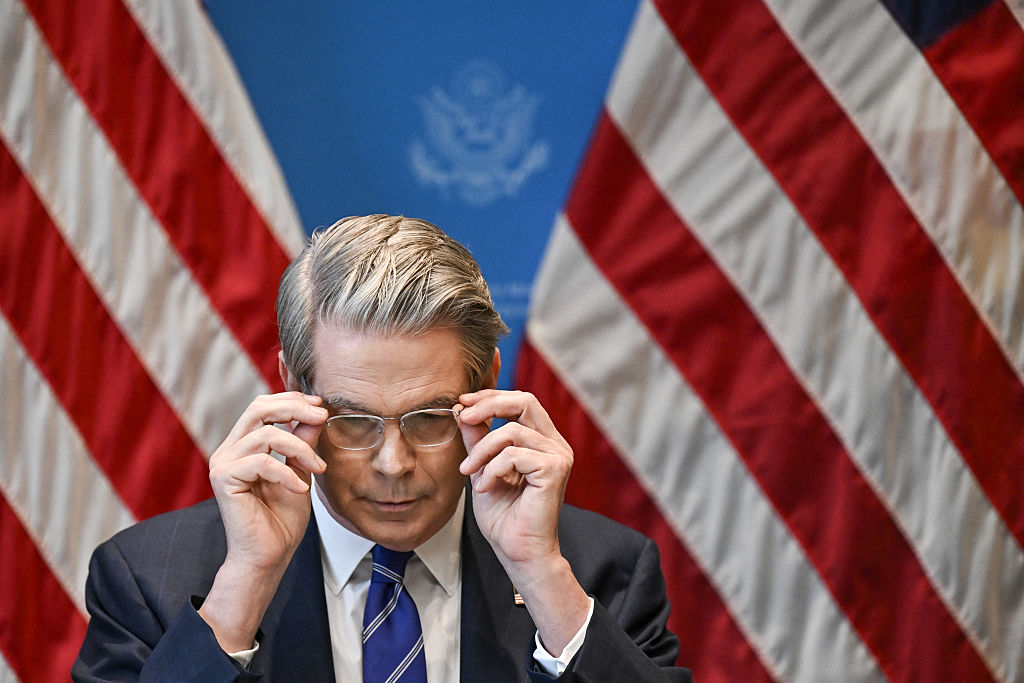
After a weekend of negotiations, the U.S. and China have agreed to a timeout in their high-stakes game of trade chicken. But to Beijing, that pause is looking more like a win. “China’s firm countermeasures and resolute stance have been highly effective,” CCTV, a Chinese state television channel, declared on Weibo.
Over the weekend, the two countries reached an agreement to dramatically reduce tariffs on one another’s goods—for now. Treasury Secretary Scott Bessent and U.S. Trade Representative Jamieson Greer met with Chinese officials in Switzerland to negotiate the temporary tariff reduction, prompting the stock market to surge as President Donald Trump praised a “total reset” in relations with China.
But the declaration may be premature. Although the U.S.’ 145 percent tariff and China’s 125 percent tariff have been walked back, 30 percent duties on Chinese goods and 10 percent taxes on American products remain. Beijing did not make any major concessions regarding its trade practices, and the tariff reduction itself ...
As a non-paying reader, you are receiving a truncated version of The Morning Dispatch. You can read our 1,439-word item on U.S.-China trade negotiations in the members-only version of TMD.
Today’s Must-Read
The notion that Donald Trump’s second presidency has launched an era of austerity and budget cutting is widespread among Republican politicians. They point to the aggressive slashing of government by the so-called Department of Government Efficiency, to the shuttering of some agencies, and to intense negotiations to curb spending in the reconciliation bill now being hashed out among congressional Republicans. They note that Democrats are accusing them of strangling the government, and describe a commitment to bear heavy political costs for the sake of the nation’s fiscal future. Many congressional Republicans, and many Republican voters, seem genuinely to believe that we are in an era of deficit reduction.
Toeing the Company Line
Anchor, Baby
Will central planning have political legs on the right?
The Forgotten Word: Sex
Why the discourse on sex and gender is so toxic.
Victims Once More
HHS cuts imperil a vital 9/11 medical aid.
Pause on China Tariffs Prompts Optimism, Uncertainty
The markets have rewarded the Trump administration’s walkbacks, but the president is still a true believer in trade protectionism.
The Clash of Culture and Employment Rights
The hottest club in law world is the Fifth Circuit Southwest Airlines case.
Worth Your Time
- In The Atlantic, Anne Applebaum painted a bleak picture of the humanitarian crisis facing refugees who flee war-torn Sudan, captured by photographer Lynsey Addario in a series of heart-piercing images. “In Tiné, a barren desert town in eastern Chad, the first humanitarian crisis of the post-American world is now unfolding. Thousands of people fleeing the civil war in Sudan’s Darfur region have recently arrived there after enduring long journeys in relentless, 100-degree heat. Many have nothing—they report being beaten, robbed, or raped along the way—and almost nothing awaits them in Tiné,” Applebaum wrote. “Local Sudanese groups, part of a mutual-aid movement called Emergency Response Rooms, are collecting donations from overseas and have begun offering meals to refugees, as they do all over Sudan. But if the number of displaced people continues to grow as the scale of the disaster expands, these volunteers will also need more resources, if only to ensure that everyone in Tiné eats a meal every day. Eyewitnesses report people dying of thirst on the way to Tiné, and malnourished children arriving among the refugees.”
Presented Without Comment
Axios: Trump Says European Union Is ‘Nastier Than China’
Also Presented Without Comment
New York Times: Cuomo Loses $622,000 Over Concerns of Improper Super PAC Coordination
Former Gov. Andrew M. Cuomo was denied more than $600,000 in public matching funds on Monday after the New York City Campaign Finance Board found that he most likely engaged in illicit coordination with a super PAC supporting his campaign for mayor.
Also Also Presented Without Comment
ABC News: [Democratic] Gov. Gavin Newsom Urges California Cities and Counties to Ban Homeless Encampments
In the Zeitgeist
Two years after Dead & Company—a band comprising former Grateful Dead band members and guitarist and singer John Mayer—wrapped up its final tour, the band is back for a three-night concert in San Francisco’s Golden Gate Park in August.
The Grateful Dead first played at the park’s Polo Fields in January 1967, and went on to perform there 13 more times throughout the 20th century.

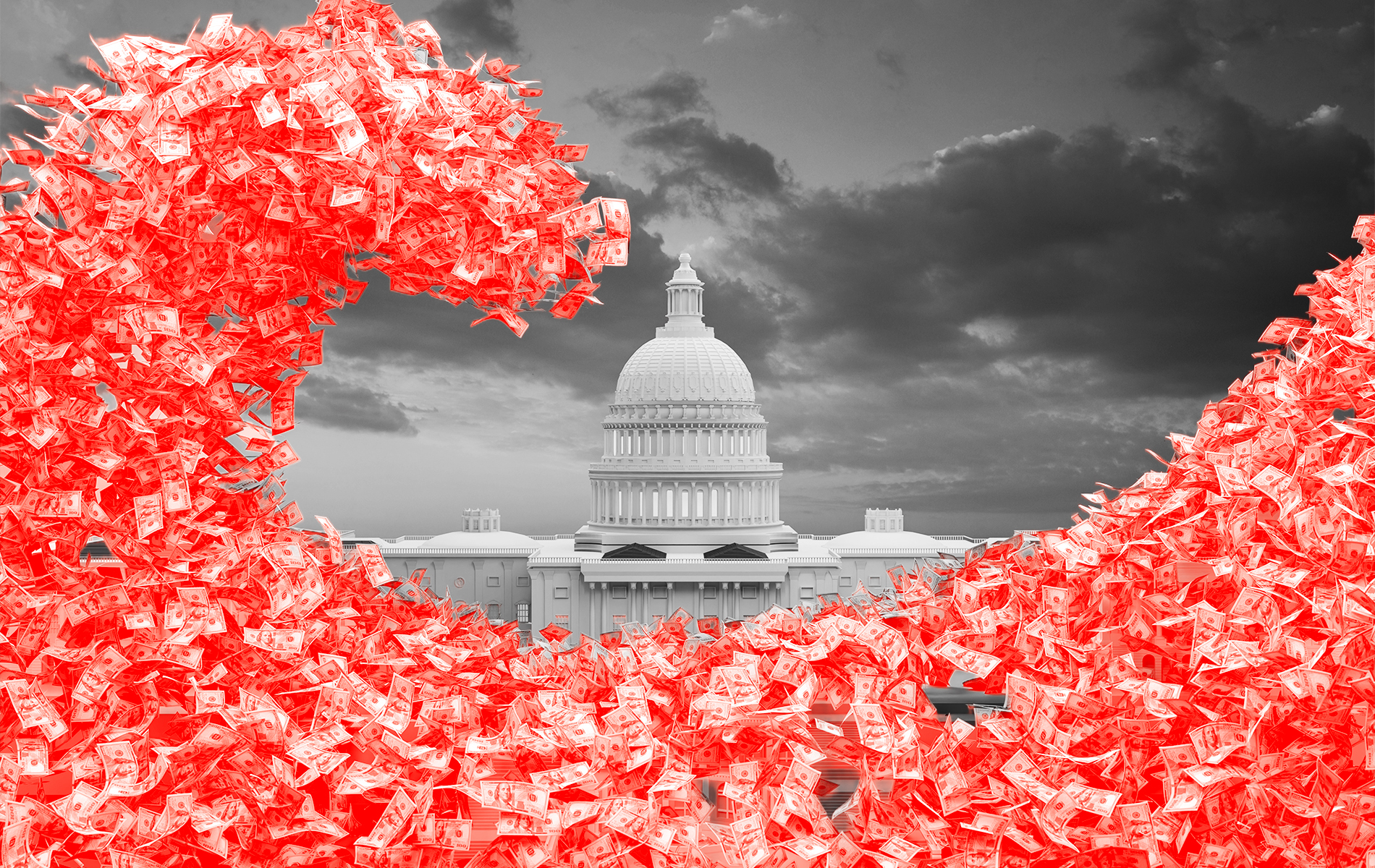



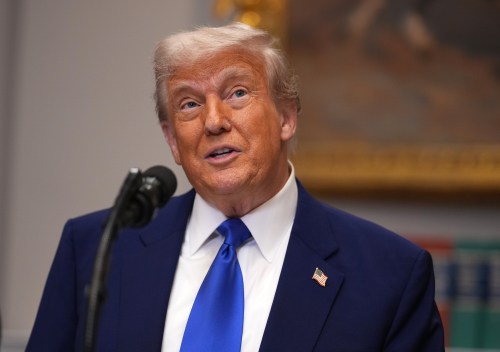




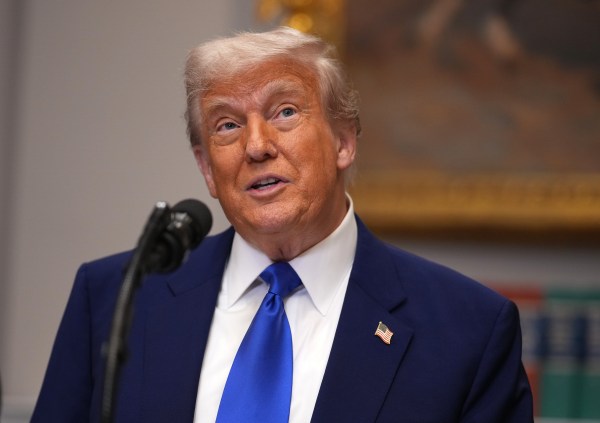



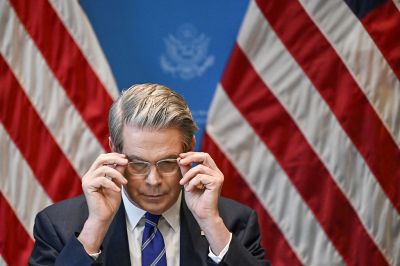
Please note that we at The Dispatch hold ourselves, our work, and our commenters to a higher standard than other places on the internet. We welcome comments that foster genuine debate or discussion—including comments critical of us or our work—but responses that include ad hominem attacks on fellow Dispatch members or are intended to stoke fear and anger may be moderated.
With your membership, you only have the ability to comment on The Morning Dispatch articles. Consider upgrading to join the conversation everywhere.